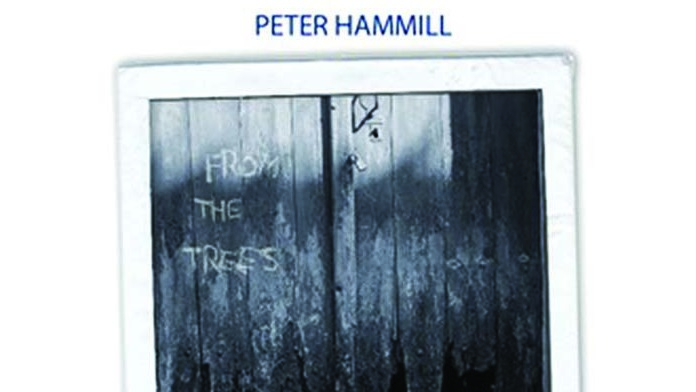Peter Hammill’s 35th album under his own name is a finely crafted masterpiece that grapples fearlessly with the varied psychological aspects of old age. Forget the demon alcohol or drugs, advancing time is prog’s worst enemy as more of its veteran heroes, young guns when they started making waves half a century ago, are falling with increasing frequency.
Peter Hammill, who co-formed Van der Graaf Generator at Manchester University 50 years ago, is one of the few to square up to their mortality on record. He even started 40 years ago, with the projected later life of 1976 track Autumn, but he inevitably upped the intensity after 2003’s near-fatal heart attack at 55. That narrow escape was reflected in his astonishing next album, Singularity.
This vulnerability has underpinned subsequent albums with varying degrees of transparency, joined by increased focus on vanishing family, friends, places and contemporaries. Always intensely driven, Hammill has described an ongoing thread “that I make an effort to document some of the passages of life through which most of us go as I experience and observe them”.
Starkly simple, befitting an album named after an eternal symbol of ageing with natural beauty and dignity.
This ethos is used to devastating effect on his follow-up to 2014’s cinematic noir epic …All That Might Have Been…. True to long‑standing form, its multi-tiered firewalls of vocals and swirling electronic backdrops are followed by “10 songs, all of them on the short end of things and generally conventional – or as conventional as I get – in form”.
Long-time devotees will know this means more concise statements that make their point in under five minutes. Subtly hued and autumnal, these 10 songs are starkly simple, befitting an album named after an eternal symbol of ageing with natural beauty and dignity. As Hammill puts it, “The characters who pace their fretful way through these songs are, in general, facing up to or edging their way towards twilight… None of these songs are of soft comfort, but in the third act of life it’s time to look with a clear eye at where one has (or, indeed, has not) been, at where one’s going.”
Unusually, when he started work on the album last year Hammill, performed these songs live on piano or guitar (“old school”) before recording. Each follows its chosen mood, maybe suggesting a chorus or hook but invariably with a seat-clenching turn or heart-in-mouth lyrical twist. His overdubbed chorales are less frenetic and more warmly carpeted – even if that devil still likes to whisper on his shoulder. Synthesisers are used as tonal crayons rather than flamethrower paint brushes. This makes the gorgeous strings that rise on closing track The Descent, about coming down from life’s peak, doubly effective when they fade into infinity as the album’s final sound.
During his first three decades or so, Hammill often sang of the pain, anger or melancholy caused by lost love. From The Trees sees him reflecting on those changes that seem to set in after passing 60, questioning his lost youth and asking why all that energy wasn’t sometimes put to better use.
Girl To The North Country reaches back to folk scene beginnings (‘She was once your lucky star, you went and let her down so hard’), while My Unintended is ‘the letter I never sent’, capturing these uncomfortable moments when traumatic episodes or bad decisions of decades ago suddenly jerk into sharp focus, to be re-examined as if they can still be put right.
Being Hammill, as he sings on Charm Alone, ‘My private thoughts, I keep them all well hidden,’ which means projecting painful situations through characters, such as the performer losing his muse and audience on Milked, finding ‘Fame and fortune are falsehoods that’ll leave you for dead’ on Reputation (against a rolling Brecht-Weill piano jaunt) or, even worse, finding no one listening (On Deaf Ears).
The compelling uncertainty of What Lies Ahead concludes, ‘Let’s leave the truth unsaid about all those lies ahead.’ Paradoxically, Hammill pours the bleak lyrics of Torpor (‘I find it hard to breathe, I can’t maintain the pace, feels like I’m slowing irreversibly and there’s no knowing where this leads’) over the album’s most exquisite vocal melody.
This isn’t to say that this richly compelling album can only be appreciated by sexagenarians, even if it is gratifying to encounter something so much deeper than the usual ageist gags. With Hammill, an album’s always going to touch emotions that are universal at any age and, on any level, From The Trees demands to be held among his evocative best. It might just take a little time.

